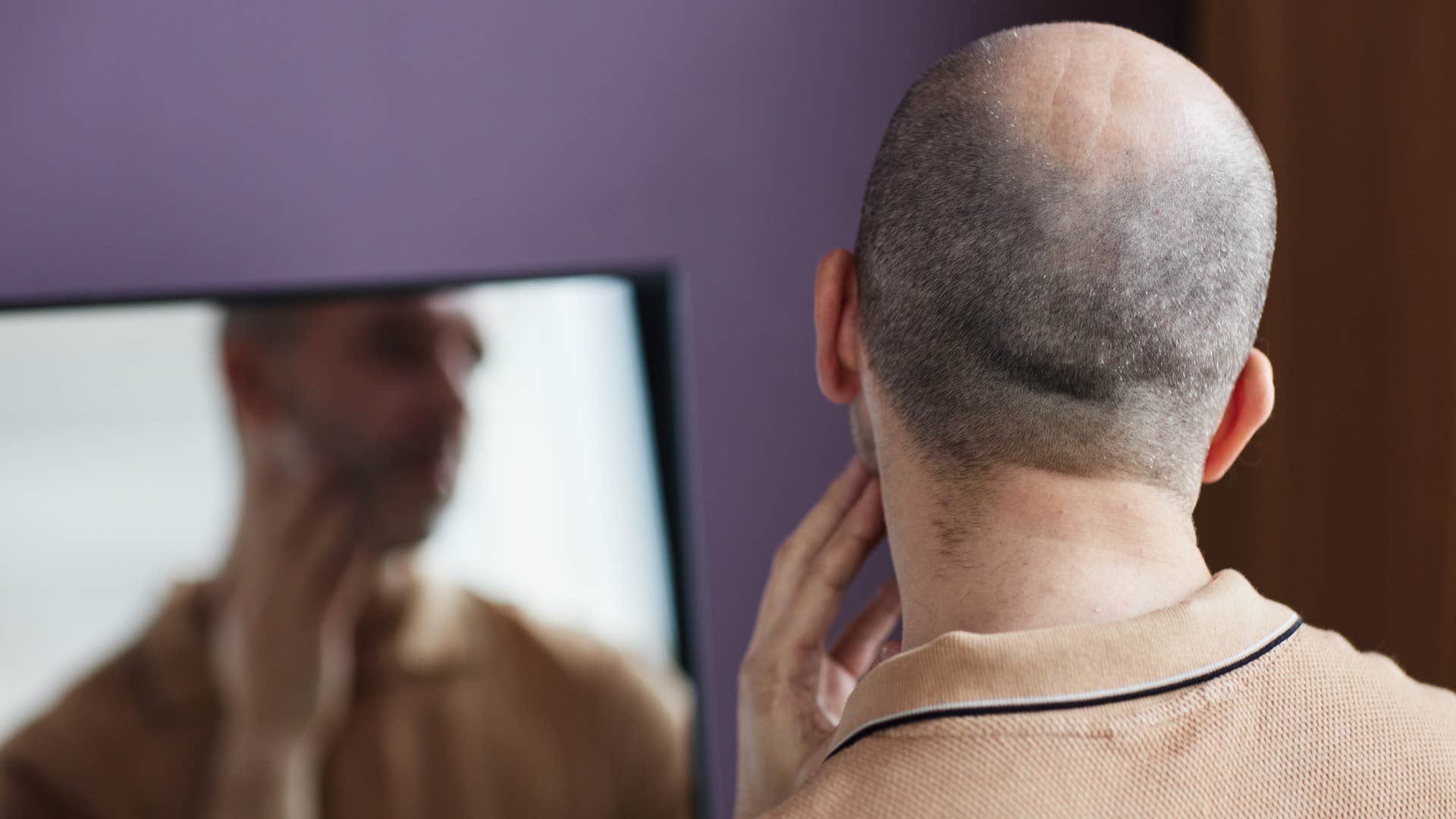7 Psychological Signs Someone Has The ‘Adonis Complex’ — An Obsession With Perfection
They don't just want to look good; they literally crave flawlessness.
 Bobby Lovejoy | Unsplash
Bobby Lovejoy | Unsplash With so many people exploring their identity, various psychological "complexes" have been identified, from superiority complexes to savior complexes. But one alarming condition rarely gets discussed: the Adonis complex, a crisis of male body obsession. What is an Adonis complex? Named after the Greek god who epitomized masculine beauty, the Adonis complex is a psychological condition causing boys and men to obsess over achieving physical perfection.
It can lead to steroid abuse, eating disorders, excessive muscle building, and unnecessary cosmetic surgery. This unhealthy fixation can manifest as mild dissatisfaction or escalate into serious conditions like anorexia, body dysmorphic disorder, or bulimia. Also termed "muscle dysmorphia" by researchers Harrison Pope, Katharine Phillips, and Roberto Olivardia in their book The Adonis Complex: The Secret Crisis of Male Body Obsession, the condition causes sufferers to believe they're never enough, regardless of how others see them.
What causes it? Society's pressure on men to be perfect, media influence, and the desire for social validation all fuel this complex. Over the past two decades, cosmetic procedures on men have increased by over 28%, according to the American Society of Plastic Surgery. Many fitness-minded men receive messages that "bigger is better" regarding muscle mass, yet no matter how much they transform their bodies, they remain perpetually dissatisfied with their image.
Here are 7 psychological signs someone has the Adonis Complex:
1. They're hyper-focused on their physical appearance
 Viorel Sima / Shutterstock
Viorel Sima / Shutterstock
People with an Adonis complex see every perceived flaw possible on their bodies. They are obsessed with their muscle mass, body fat percentage, and, rather than seeing their desirable physical traits, are hyper-focused on "blemishes."
Research shows that half of men with muscle dysmorphia spend more than three hours daily thinking about their muscularity, with 58% reporting moderate to severe avoidance of activities and social situations due to their perceived physical defects. This obsessive focus manifests as constant body checking in mirrors and mental comparisons with others.
2. They have compulsive exercise routines
 Standret / Shutterstock
Standret / Shutterstock
Regular exercise is good for you, but being compulsive about your exercise routine, not so much. Life is all about balance. There should be a time when you are simply being present and enjoying life. If most of your free time is consumed with exercise, you might have an Adonis complex.
Licensed psychologist Dr. Judith Tutin notes that many people avoid trying new forms of exercise because they fear not doing them perfectly. This perfectionist mindset extends to those with the Adonis Complex who turn exercise into rigid, unbreakable routines.
3. They adhere to restrictive dieting
 Prostock-studio / Shutterstock
Prostock-studio / Shutterstock
Worrying about what to eat and when to eat constantly is enough to drive you insane. Eating what you want in moderation and sticking to a balanced diet is important in maintaining optimal health. But you should not be thinking about your diet around the clock and worrying about how every bite or sip you consume will show up on your body.
Obsessions about muscularity lead directly to these restrictive dietary behaviors, with the constant mental preoccupation around food serving as a bridge between muscle dysmorphia and eating disorders, research has found. Unlike flexible approaches to nutrition that allow for moderation, those with muscle dysmorphia struggle to eat at restaurants or social gatherings where nutritional information isn't available.
4. They use steroids or other performance-enhancing substances
 mitsukyshi / Shutterstock
mitsukyshi / Shutterstock
Adding steroids or substances that increase performance can be a natural progression for a man obsessed with body image. This can result in problems like hair loss, cysts, abscesses, yellow skin or eyes, liver damage, brain damage, and others.
Because people with an Adonis complex are not thinking realistically, they don’t realize that the risk is not worth the reward. As noted by mental health professionals who work with body image disorders, this represents a dangerous progression where the obsession with physical perfection overrides rational decision-making, leading men to prioritize their appearance over their long-term health and well-being.
5. They have body dysmorphia
 SeventyFour / Shutterstock
SeventyFour / Shutterstock
An unhealthy obsession with your body can lead you to find problems that really don’t exist. Your mind makes you believe you are lacking in areas you are not. You constantly compare yourself with others, have a negative self-image, and suffer from emotional and psychological distress due to your perceived inability to be good enough.
This distorted self-perception fuels harmful social comparison tendencies. These men constantly measure themselves against others they view as superior, creating a downward spiral of negative body image and potentially harmful behaviors, according to research.
6. They tend to withdraw socially
 yourphotopie / Shutterstock
yourphotopie / Shutterstock
An Adonis complex is a double-edged sword because, on one hand, you want the world to admire your physique, but on the other hand, you never feel you have reached a satisfactory level of physical attractiveness and can withdraw socially. People with an Adonis complex tend to isolate themselves while they strive for perfection in private.
Career coach Dr. Ruth Schimel notes that perfectionism can become an "excuse for avoiding something else, such as completion." In this case, avoiding social interactions that might expose perceived physical inadequacies. The result is a self-perpetuating pattern where the pursuit of physical perfection becomes both the goal and the barrier to meaningful social connection.
7. They hold a negative self-image
 fizkes / Shutterstock
fizkes / Shutterstock
The key component of the Adonis complex is the inability to see yourself as "good enough." No matter how hard you work or how coveted your body is, you will always have a negative self-image. By definition, this complex gives you the inability to see what is really there when it comes to your size, shape, and physical condition.
Studies of male bodybuilders with the condition revealed they displayed distorted body image and believed they were small and thin despite being quite muscular. This distorted self-perception occurs at younger ages and illustrates how individuals become dissatisfied with their bodies because their internal perception tells them they must look better, creating an endless cycle of 'not good enough'.
The first step in dealing with the condition is recognizing you have it. Once you’ve conceded that you might suffer from muscle dysmorphia, a licensed professional can help with cognitive-behavioral techniques to direct your thinking to more reasonable and attainable fitness goals.
You may have heard the saying "It’s me vs. me" somewhere before. What that means is you are not here to compete with others, but to simply be a better "you" than you were yesterday. Understanding that everyone’s body composition and lifestyle are different can help you to develop a plan that works for you and prevent unfair comparisons to others.
If you are a personal trainer who deals with clients, the best thing you can do for them is recognize the signs of an Adonis complex and develop a list of treatment and referral options should the need arise. The good news is that having an Adonis complex doesn’t mean it has to be a permanent condition.
NyRee Ausler is a writer from Seattle, Washington, and the author of seven books. She focuses on lifestyle and human interest stories that deliver informative and actionable guidance on interpersonal relationships, enlightenment, and self-discovery.

